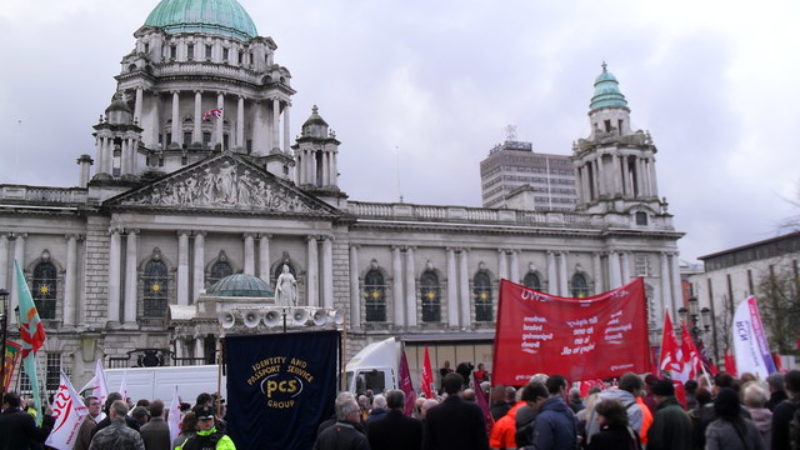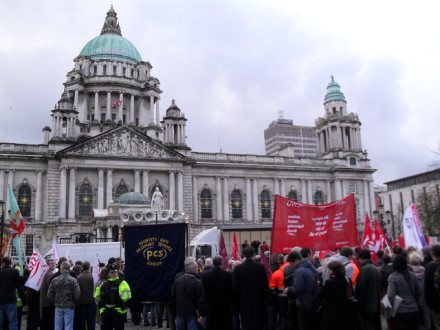

The Paradise Papers, leaked last week, demonstrate the contempt with which some corporations and individuals treat their duty to pay a fair share of tax in Britain.
Not all the activity which has been revealed in the 13.4 million papers from two offshore service firms is illegal. By contrast, much of it falls within tax legislation, or takes advantage of loopholes. But it is depressingly indicative of a culture compounded by seven years of Conservative government. It suggests that there is one rule for the rich with an army of accountants and clutches of opaque trusts – and another for ordinary people in Britain.
Under this regime, the tax gap in the UK is officially estimated to be at least £36bn – up from £33bn in 2010. This figure is at best a conservative estimate, given that the government’s definition of the tax gap excludes convoluted corporate structures which we know are used by multinationals operating here to minimise their tax liabilities. This view, that HMRC’s tax avoidance figures are woefully underestimated, is shared by the Institute for Fiscal Studies and the Commons’ public accounts committee.
As a world-leading and stable business centre, the UK should be proud of its ability to attract some of the world’s biggest companies, but recouping full tax revenues is also part of the deal. With Brexit around the corner, HMRC critically under-resourced and a sizeable tax gap to tackle, now is a vital time to overhaul our approach to making sure everyone pays their fair share.
Our relationship with our neighbours forms part of this. The Paradise Papers have uncovered a number of allegations relating to Northern Ireland (NI). One of the most serious, revealed by the BBC, suggests that a number of business owners have been involved in “aggressive tax avoidance schemes”, including one in which the taxpayer-funded Invest NI is a shareholder.
Northern Ireland is on the cusp of dramatically dropping its corporation tax rate to 12.5 per cent, a significant differential to the UK’s 19 per cent. The Westminster government has introduced, in its most recent finance bill, the opportunity for small and medium enterprises to divert profits and losses to NI to benefit from this rate, where there is a qualifying trading presence.
The gap between 12.5 per cent and 19 per cent represents significant potential for arbitrage between Northern Ireland and the UK. Labour’s concern is that the loosening of these rules could lead to brass-plating, where UK businesses are given a loophole of being able to find lower tax jurisdictions where they can domicile their businesses, while in reality, continuing to operate here in the UK.
This is not to suggest that these rule changes would necessarily lead to a flight of SMEs rushing to domicile in Northern Ireland. We know that the majority of enterprise operating in the UK is upfront and committed to paying their fair share, and we should be vocal in our praise of the contribution that they make to the productivity of the UK economy. However, opening what could be a loophole is significant, and it is critical that we protect against unforeseen consequences.
Behavioural effects can be notoriously unpredictable. This is why we have pushed the government to undertake a review of the impact to ensure that NI as a jurisdiction is not being abused as a result of this new measure – which they have resolutely refused to do.
This is critical at a time when the British economy simply cannot afford to lose revenue out of the door to tax avoidance. Every penny avoided is one that could go towards remedying our under-funded NHS, struggling schools, underpaid public sector workers or investment in our crumbling infrastructure. The Paradise Papers are a shocking reminder that some of the most privileged will employ whatever means they can to avoid paying their fair share. We need to have a robust and watertight system in place in the UK to prevent this abuse.
Peter Dowd is shadow chief secretary to the treasury and MP for Bootle.




More from LabourList
Joani Reid resigns Labour Party whip after husband accused of spying
‘Labour won’t win back left defectors with squeeze messaging alone’
‘Help shape the next stage of Labour’s national renewal through the 2026 NPF consultation’